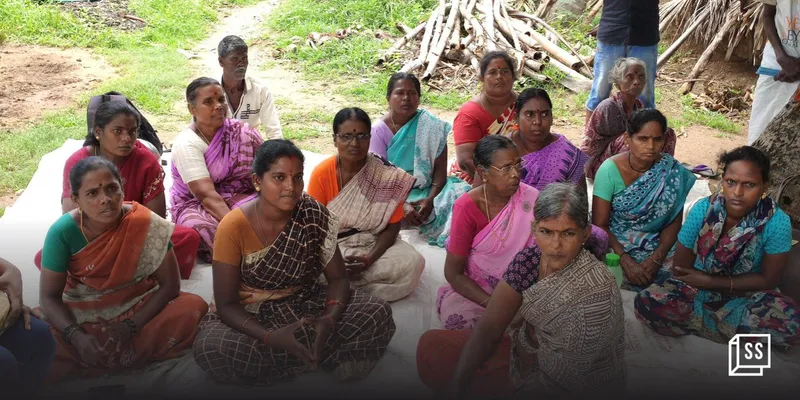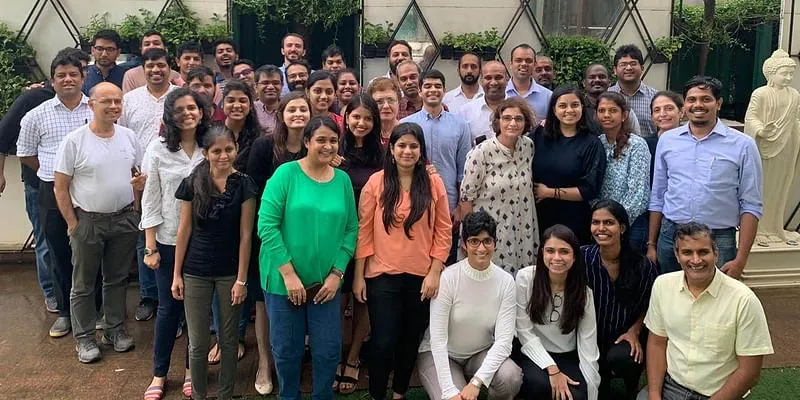From empowering women farmers to reimagining social change: top Social Stories from this week
This week, SocialStory divulged into a range of topics, including the conservation of nature, empowering women farmers, creating social impact through businesses, and more.
There are many things in the world that we take for granted, and nature is one of them. Taking us on a tour of Northeast India, Rushikesh Chavan from The Habitats Trust talks about the degrading condition of rainforests in the region and the extinction of hoolock gibbons.
Meanwhile, a human trafficking survivor from Jharkhand shares her journey and how she supports other victims like her.
Concern India, Verizon empower women farmers in Tamil Nadu—one village at a time

Chengalpattu district, formerly a part of the Kancheepuram district in Tamil Nadu, depends entirely on agriculture as its income source. Nearly 21% of Chengalpattu’s inhabitants are economically disadvantaged, comprising mainly landless agricultural workers and marginal farmers and lack basic amenities, including proper housing, access to water, and healthcare.
In the 1950s, the Tamil Nadu government, under the Bhoodan Movement (land gift movement), gifted land to landless families of Chengalpattu to get them into mainstream society. However, most of these land patches were either barren, wasteland, rocky, or had no water source. And, barring a small area near the river bed of Palar, the majority of the district’s agricultural activities are supported by the monsoon.
Mumbai-based Concern India Foundation realised these women farmers would need support with farming, otherwise engaged as daily wage labourers on other farms.
This company is helping businesses reimagine social change

FSG team in India
There is a lot of philanthropic work taking place around the world, but there is little thought on how the money is utilised and whether it is creating an impact.
Professors Michael Porter and Mark Kramer, Co-founders of , a global, mission-driven consulting firm, believe that rather than separating good from the business, one needs to strategise good business. Founded in 2000, Boston-based FSG partners with foundations and corporations to create equitable systems of change.
FSG came to India in 2010 with four employees, and currently, the Mumbai-headquartered firm has a team of 45 people, including senior consulting professionals.
After escaping from human trafficking, I started working with survivors to support them

My name is Sanjita Kumari, and I come from Gumla in Jharkhand. Since my childhood, I have seen my family struggle due to poor financial conditions. Whether job or studies, we were taught to do it on our own.
In 2016, when I was in Class 9 and was nearing writing my matriculation exam, my cousin came over to my house. She promised to get me a good job outside the city if I went with her.
My mother’s health condition was not good and she couldn’t go and work on her own. However, I didn't want to leave my home and work at that time. I conveyed the same to my family and my cousin.
The last hope for degrading rainforests and vanishing gibbons of Northeast India

A snap of hoolock gibbon
On a lazy morning in 2012, I was reading a short piece published by Narayan Sharma in a journal on the trends in the diurnal primate population and its local extinction in the lowland rainforests of the Upper Brahmaputra. This truly shook me.
When one thinks of Northeast India, one imagines unlimited stretches of lush evergreen forests, but here was a paper reporting that the last remaining rainforests are degrading and fragmenting at disturbing rates. From a decline in population to potential local extinction, the findings were horrific.
The forests of Bherjan, Borajan, and Podumoni in Assam have the highest biomass of primates compared to anywhere else in the Indian subcontinent, and it is evident that the deforestation of this tropical lowland has been on for two centuries now.
However, in the last few decades, it has taken a turn for the worse at a rapid pace. What was once a contiguous forest is now just small patches of land separated by tea estates and agricultural holdings.
Edited by Suman Singh






